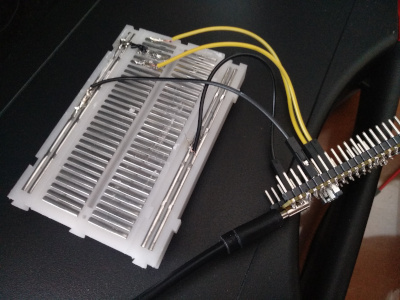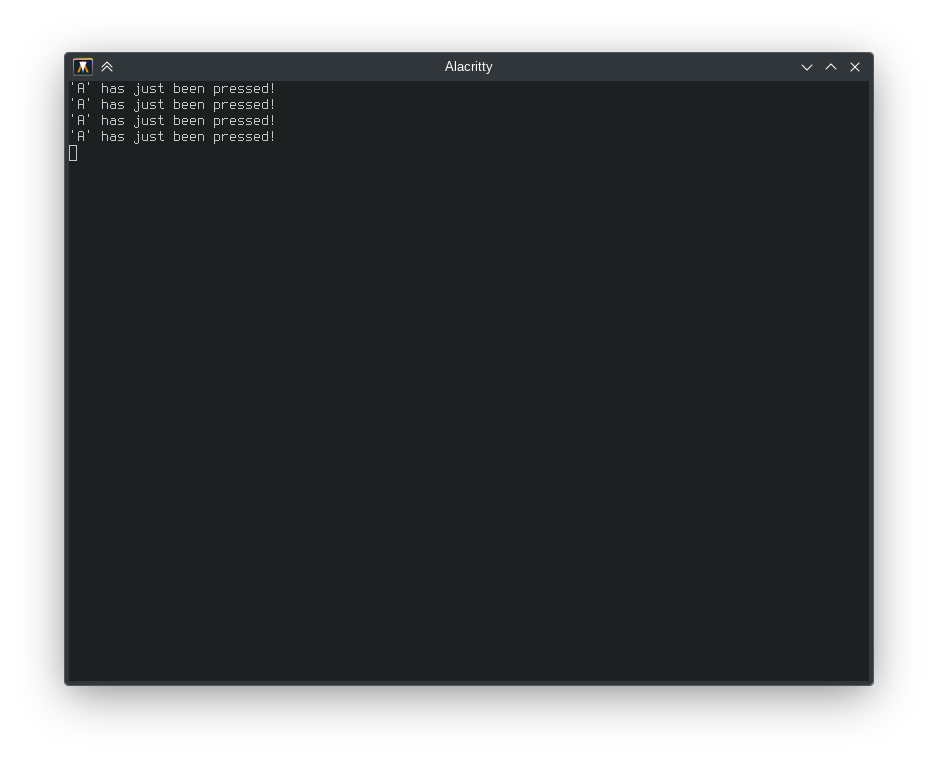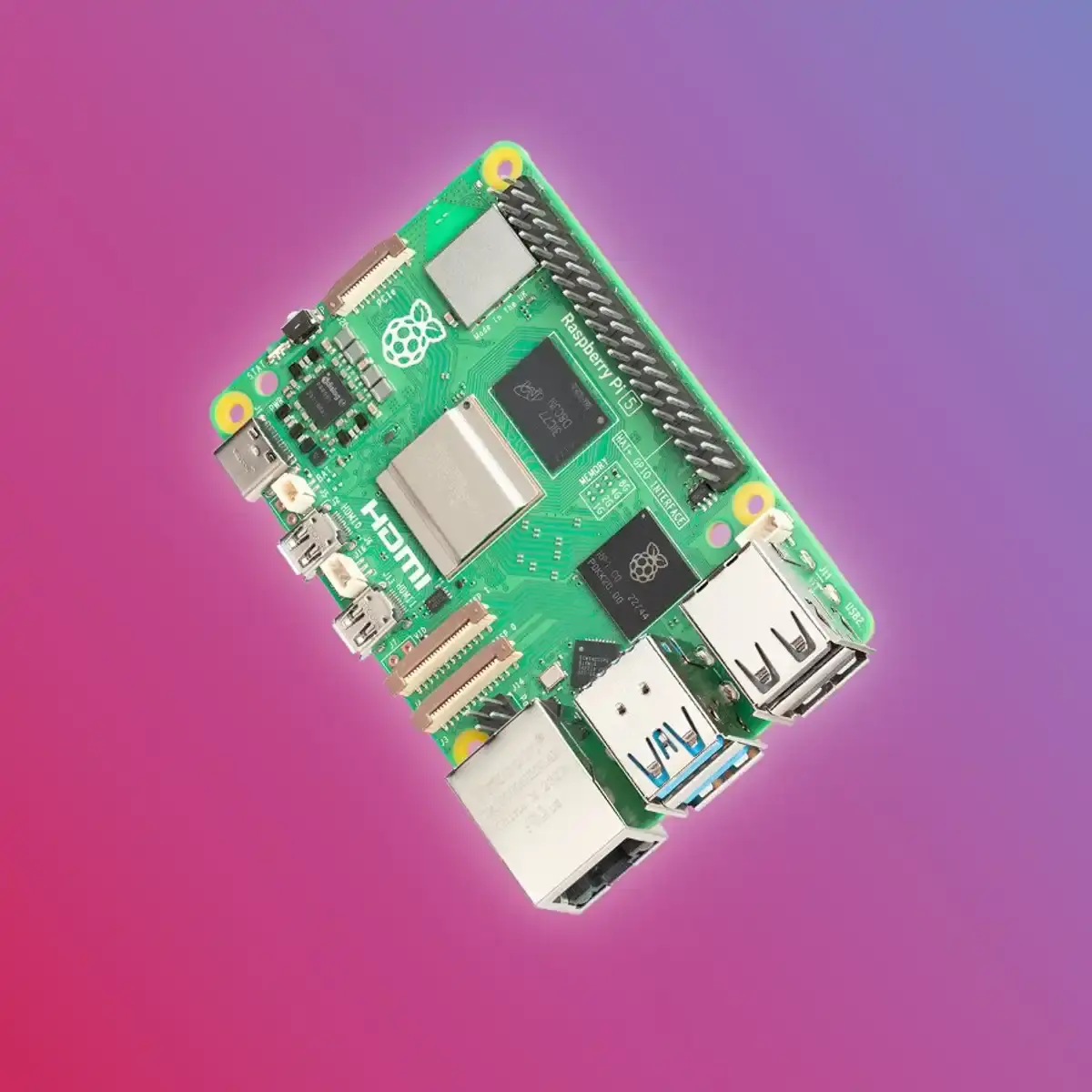Only 2 buttons are actually connected, but they work well.
The duo comes without the connectors, so I had to solder some into it. It was a fun experience!
For the people who don’t know the duo, it is a very little board (something like an alternative to the RPi Pico) that runs a RISC-V chip! I bought mine from Aliexpress in a pack with other stuff for like 10€.
Here is the underside of the gamepad thingy:

Not the best soldering job but it’s to be expected since I don’t have experience.
I also made a little program in C to test the buttons:

Every time I press a specific button the program prints a string to the screen. When pressing the other wired button the program ends.
Here is the source code in case anyone is curious
#include
#include
#include
#include
#include
/// It's t1 - t2, in seconds
double get_time_diff(struct timespec t1, struct timespec t2) {
double a = (double)t1.tv_sec + (t1.tv_nsec / 1000000000.0);
double b = (double)t2.tv_sec + (t2.tv_nsec / 1000000000.0);
return a-b;
}
int main() {
const int DEFAULT_COUNTER = 1;
const double FRAME_TIME = 1.0 / 60.0;
int BUTTON_A = 7;
int BUTTON_B = 8;
int A_high = 0;
int A_pressed = 0;
int A_just_pressed = 0;
int A_counter = 0;
int B_high = 0;
int B_pressed = 0;
int B_just_pressed = 0;
int B_counter = 0;
if(wiringXSetup("duo", NULL) == -1) {
wiringXGC();
return -1;
}
if(wiringXValidGPIO(BUTTON_A) != 0) {
printf("Invalid GPIO %d\n", BUTTON_A);
}
if(wiringXValidGPIO(BUTTON_B) != 0) {
printf("Invalid GPIO %d\n", BUTTON_B);
}
pinMode(BUTTON_A, PINMODE_INPUT);
pinMode(BUTTON_B, PINMODE_INPUT);
time_t init_time;
time(&init_time);
printf("Init time: %s\n", ctime(&init_time));
struct timespec tick_start_time;
timespec_get(&tick_start_time, TIME_UTC);
struct timespec tick_end_time;
timespec_get(&tick_end_time, TIME_UTC);
// Start ncurses
initscr();
while(1) {
timespec_get(&tick_start_time, TIME_UTC);
if (get_time_diff(tick_start_time, tick_end_time) >= FRAME_TIME ) {
// INPUT
if (digitalRead(BUTTON_A) == HIGH) {
if (A_high == 0) {
A_counter = DEFAULT_COUNTER;
} else if (A_counter > 0) {
A_counter--;
}
A_high = 1;
if (A_just_pressed == 1) {
A_just_pressed = 0;
}
if (A_counter <= 0) {
if (A_pressed == 0) {
A_just_pressed = 1;
}
A_pressed = 1;
}
} else {
if (A_high == 1) {
A_counter = DEFAULT_COUNTER;
} else if (A_counter > 0) {
A_counter--;
}
A_high = 0;
if (A_counter <= 0) {
A_just_pressed = 0;
A_pressed = 0;
}
}
if (digitalRead(BUTTON_B) == HIGH) {
if (B_high == 0) {
B_counter = DEFAULT_COUNTER;
} else if (B_counter > 0) {
B_counter--;
}
B_high = 1;
if (B_just_pressed == 1) {
B_just_pressed = 0;
}
if (B_counter <= 0) {
if (B_pressed == 0) {
B_just_pressed = 1;
}
B_pressed = 1;
}
} else {
if (B_high == 1) {
B_counter = DEFAULT_COUNTER;
} else if (B_counter > 0) {
B_counter--;
}
B_high = 0;
if (B_counter <= 0) {
B_just_pressed = 0;
B_pressed = 0;
}
}
// UPDATE
if (A_just_pressed == 1) {
printw("'A' has just been pressed!\n");
}
if (B_just_pressed == 1) {
// Exit the loop, which will end the program
break;
}
refresh();
timespec_get(&tick_end_time, TIME_UTC);
}
}
// Stop ncurses
endwin();
return 0;
}
I hope someone finds this interesting! Thanks for reading.
You must log in or register to comment.

